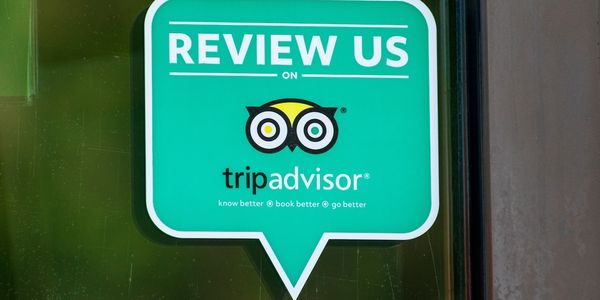More travel means more online reviews. More reviews mean more fakes — and more work for the people, and technology, set up to catch them.
Tripadvisor said Tuesday it blocked a record 2 million misleading reviews from its site in 2023 while stopping 4 in 5 of those reviews from ever appearing on the site — another record for the company.
Removing fake reviews to preserve the integrity of those that remain has been a growing concern for both government regulators and the companies that rely on online customer reviews, including suppliers such as hotels and tour operators and online travel agencies that also display reviews, such as Expedia and Booking.com.
With more than a billion reviews and opinions from global travelers on its site, Tripadvisor lays claim to the title of the travel’s leading guidance platform — making its biennial transparency reports something of a barometer for the industry.
In the report it released last year, the company found that in 2022 about 4% of its 30 million reviews were fakes. Tuesday’s news came in the form of a blog post by Becky Foley, the vice president of trust and safety at Tripadvisor. With 31 million reviews submitted to the company last year, blocked reviews accounted for 6.3% of the total — more than a 50% increase from the previous year.
As online reviews grow more important in how consumers choose where to go and what to do when they travel, the number of fakes has also increased.
“Fake” is a catch-all term that also includes misleading or biased posts. These include positive reviews from owners, employees or family members associated with a business; paid reviews; reviews posted by competitors to hurt another business; and fraudulent reviews posted independently by consumers to either boost or hurt a business.
In recent years, Tripadvisor has seen a notable uptick in what it calls incentivized reviews — those that are posted in exchange for freebies. More scrutiny on such reviews might explain part of the growth in fakes last year, as incentivized reviews accounted for 22% of the blocked reviews, which Tripadvisor said was also a record number.
“Our team focused on incentivized review removal this year and the results speak for themself – we were able to remove a large number of them throughout the year,” Foley told PhocusWire in an email response to questions. “We’re committed to continuing to evolve our industry-leading combination of technology and humans to keep biased content off the site.”
Even when hotels offer even something as small as a free cookie or entry into reward raffle in exchange for a review, Tripadvisor dismisses the review as less credible than one that’s offered freely. The same applies to employee-based incentives, like giving a day off to workers who get mentioned favorably in reviews.
“Offering either of these types of rewards programs leads to biased and untrustworthy reviews,” Foley wrote in the blog post.
In 2023, European-based businesses were responsible for the highest number of user incentive violations on the site, accounting for about one-third of all violations worldwide. North America had the most instances of employee incentives, accounting for almost 40% of them. Sitewide, hotels accounted for more than half of all global incentive violations.
The rise in fake reviews has prompted growing interest in protecting consumer interests. The United States Federal Trade Commission last year proposed a set of rules that, if approved, could carry fines of up to $50,000 for each time a consumer sees a fake review.
Also last year, Tripadvisor helped organize the launch of a global coalition for trusted reviews that includes Booking.com and Expedia Group along with other websites that rely on user reviews such as Amazon, job and recruiting website Glassdoor and business review website Trustpilot. Coalition members met in San Francisco in October and Brussels in December to discuss ways to protect consumers and partners from fake reviews.
Quote
Our team focused on incentivized review removal this year and the results speak for themself – we were able to remove a large number of them throughout the year.
Becky Foley - Tripadvisor
“We are very optimistic about this group and will have more to share soon,” Foley said.
In the meantime, she shed light on Tripadvisor’s methods for flagging suspicious content in her blog post, saying her team uses the kinds of technology and analysis employed by fraud departments at banks. The automated process flags reviews that need human intervention for a final determination.
“Before a review is posted on our site, our proprietary combination of technology and humans scan them for abnormal user behavior and proactively surface incentives violations,” Foley wrote.
She also credited Tripadvisor users, both consumers who leave reviews and the businesses that respond to them, calling them “one of the best defenses we have against incentivized reviews.”
“We reach out to users where we suspect incentives may have been involved – asking them if they were offered anything in exchange for writing their review,” she said.
Tripadvisor removes the reviews and informs the business owner when incentive violations are discovered. The actions regularly result in businesses ceasing their incentive programs, Tripadvisor said. Depending on the severity of transgressions, Tripadvisor may penalize a company’s listing page.
“Ultimately, this report is about recognizing the importance of trust for platforms like Tripadvisor,” Foley wrote in the most recent transparency report. “We understand that trust is earned, not given, and by shining a light on the data and processes behind our platform, we hope to demonstrate why the trust our community has in us is not misplaced.”
Tags: Becky Foley, Tripadvisor, Expedia, Booking.com
